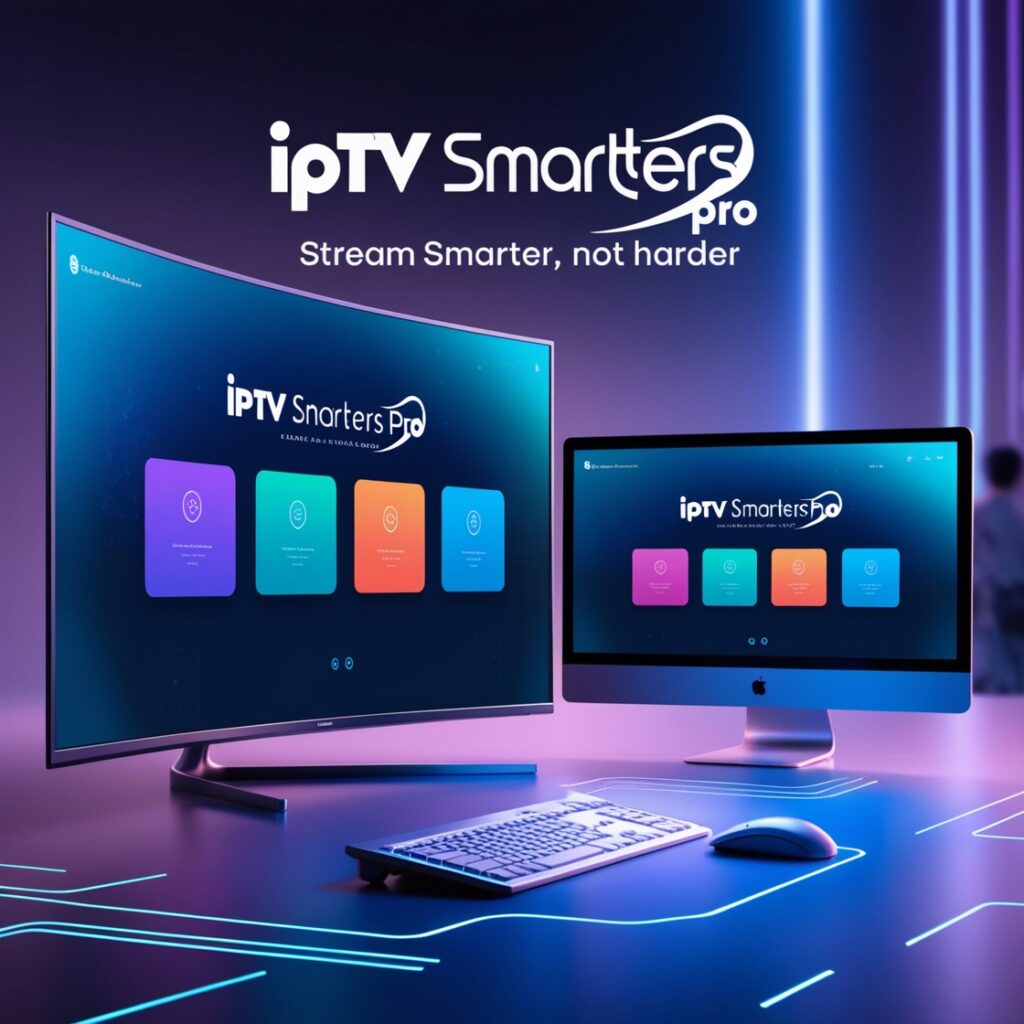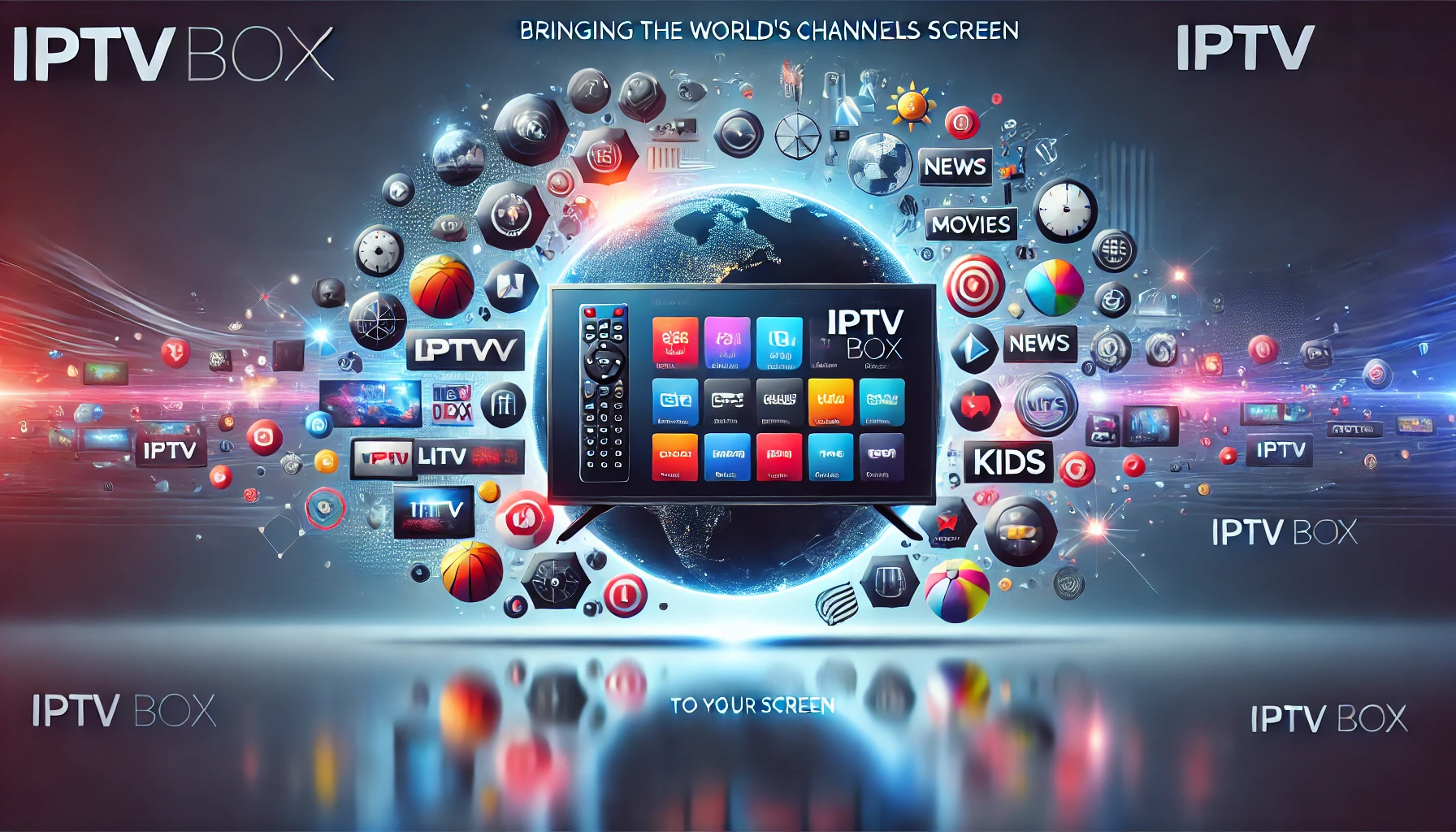In today’s world of rapid technological advancements, watching television content has never been easier or more diverse. One of the innovations that have changed the way we consume entertainment is IPTV. In this article, we will dive into the concept of IPTV, how it works, its benefits, and its different types. We’ll also explore its significance in the future of media and entertainment, and provide guidance on how to set up and use IPTV services effectively and safely.

What is IPTV?
IPTV stands for Internet Protocol Television, a service that allows users to watch television channels and video content over the internet, rather than through traditional satellite or cable broadcasts. IPTV uses the Internet Protocol (IP) to transmit data to your device, whether it’s a television, computer, or mobile device. Instead of receiving TV signals via satellite or cable, the content is delivered digitally over the internet.
How IPTV Works
IPTV operates using different technologies to deliver content. Here’s a simple breakdown of how it works:
- Source: The process begins with the IPTV service provider, who captures content from television channels or streaming platforms.
- Encoding: The content is then converted into a digital format using advanced encoding techniques.
- Distribution: The digital content is sent over the internet to users’ devices, such as smart TVs, computers, or smartphones.
- Reception: The user’s device connects to the network, downloads the content, and displays it on the screen in real-time.
Different Types of IPTV Services
There are several types of IPTV services designed to meet different user needs. These services vary in features, pricing, and content offerings. Here are some of the most common types:
- Paid IPTV: These services offer a wide range of television channels and content in exchange for a monthly subscription fee. Paid IPTV is known for its high-quality services and often includes features like video-on-demand (VOD) and sports programming.
- Free IPTV: Free IPTV services provide limited channels and content at no cost. However, the content may not be of the same quality as paid services and often includes disruptive ads.
- IPTV via Apps: Many apps support IPTV, making it easier for users to access content on smartphones, smart TVs, or other devices, offering flexibility and convenience.
Benefits of IPTV
IPTV offers a variety of advantages that make it an attractive choice for users worldwide. Some of the key benefits include:
- Flexibility and Choice: Users can choose exactly what content they want to watch, whether it’s live channels or on-demand videos. IPTV allows on-the-go access and a personalized viewing experience.
- High-Quality Content: IPTV services support high-definition (HD) or even 4K video quality, depending on your subscription and internet speed.
- Interactivity: Some IPTV services allow users to interact with the content, such as watching shows in different languages, enabling captions, or even pausing and rewinding live broadcasts.
- Convenience: IPTV can be accessed on a wide variety of devices, including smart TVs, laptops, smartphones, and tablets. This allows users to watch their favorite content anytime and anywhere.
- Cost-Effective: IPTV is generally more affordable compared to traditional cable or satellite TV services, offering various packages at a reasonable price with flexible options.
Challenges and Drawbacks of IPTV
While IPTV comes with many benefits, it also has some challenges and drawbacks that users should be aware of:
- Dependence on Internet Connection: IPTV relies heavily on a stable and fast internet connection. A slow or unreliable connection can cause buffering, low-quality video, or even interruptions in the stream.
- Legal Content Issues: Some free IPTV services may offer illegal or pirated content, which could expose users to legal risks.
- Device Compatibility: Not all IPTV services are compatible with every device or operating system, which can limit users’ ability to access their favorite content.
How to Choose the Right IPTV Service
When selecting an IPTV service, it’s important to consider several factors to ensure you get the best possible experience. Here are some tips for choosing the right service:
- Available Content: Make sure the service offers the channels and types of content that interest you, whether it’s sports, movies, documentaries, or international channels.
- Quality of Service: Check the quality of video and audio provided by the IPTV service, ensuring that it supports HD or 4K streaming for a superior viewing experience.
- Device Compatibility: Ensure that the IPTV service works with your preferred devices, such as smart TVs, computers, or smartphones.
- Legality and Security: Opt for a legitimate and secure IPTV service provider. Avoid services offering illegal or pirated content that could lead to legal issues.
- Customer Support: Choose an IPTV provider that offers reliable customer service in case you experience technical difficulties or have questions.
The Future of IPTV
As the world becomes increasingly reliant on the internet for media consumption, IPTV is expected to continue growing. Technological advancements will further enhance the IPTV experience, with improvements in streaming quality, the integration of virtual reality, and the use of artificial intelligence to tailor content to individual preferences. In the future, IPTV could revolutionize the way we consume media and entertainment.
Tips for Using IPTV Safely
While IPTV services offer a lot of benefits, it’s important to follow certain guidelines to ensure safe and secure usage:
- Use a VPN: It’s recommended to use a VPN (Virtual Private Network) when accessing IPTV services, especially for non-official services, to ensure your internet connection is secure and your data is protected.
- Keep Devices Updated: Make sure to regularly update the software and firmware of the devices used to watch IPTV content. This will help ensure you benefit from the latest features and security improvements.
- Choose a Reliable Provider: Select an IPTV service provider that is reputable and offers a good track record of quality service and content.
Conclusion
IPTV has transformed the way we watch television, making it more flexible and accessible. With this technology, users can enjoy content on-demand, in high quality, and on a wide range of devices. While there are some challenges, such as the dependence on internet speed and potential legal issues, these can be managed by choosing a reliable service and following safety guidelines. As IPTV technology continues to evolve, it is clear that it will play a major role in the future of media and entertainment, providing users with endless possibilities for how they enjoy their favorite shows, movies, and live broadcasts.
